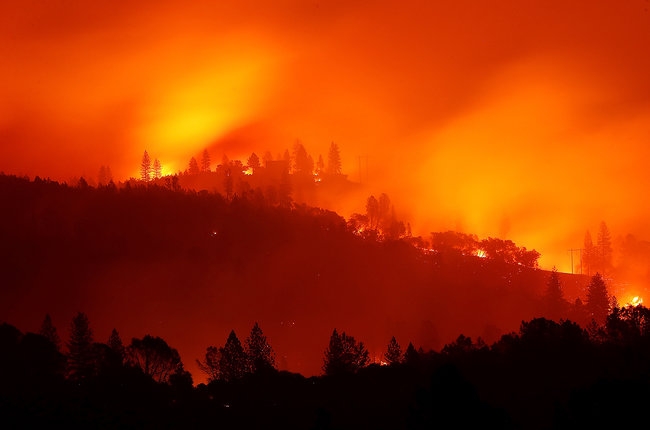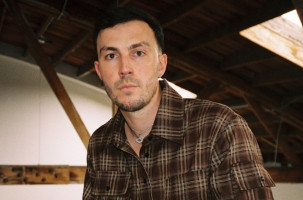As head of Los Angeles-based Jampol Artist Management, Jeff Jampol spends his days overseeing the estates of such acts as The Doors, Ramones, Janis Joplin and Otis Redding, but on the weekends he can usually be found on Mojo Risin’, his 75-foot boat that he docks in Marina del Rey, Calif.
Jampol often takes the boat out, usually loaded with friends, and drops anchor off-shore near Malibu or Catalina Island. But this past Sunday afternoon (Nov. 11), Mojo Risin,’ which takes her name from a lyric in the Doors’ “L.A. Woman,” made a special run.
Jampol took the boat to Malibu’s Point Dume to rescue people trapped by the devastating Woolsey Fire. “We thought— ha, ha, ha— that we would get in and out by sunset and we ended up out there way past midnight. It was a little hairy going in,” he says. “You have no idea what you’re going to encounter.”
The mission started simply enough. Jampol was on the boat off Catalina when he spoke to his friend, Hidden Beach Recordings founder and veteran label exec Steve McKeever, who lives on the beach in Point Dume. McKeever had evacuated and couldn’t find out if his house was still standing. “I said, ‘I have a boat and I’ll run you out there’.” Jampol then realized that McKeever wasn’t the only one who was unable to get information and maybe he could help. "I believe in principles before personalities," he says. "It’s about trying to be of service."
Jampol posted on Instagram, Facebook and Twitter that he was going to make a run from Marina del Rey to Malibu, “and the response was overwhelming," Jampol says. "We left Catalina early to get fuel and by the time I got back to my slip, there were 12-14 people waiting there, first responders and supplies, people freaked out who had no idea what was happening with their houses and [we heard] of other people stranded on the beach [in Malibu] who couldn’t get out, so we decided to run a little operation."
Jampol conferred with emergency management services before he started the journey. “The one thing you don’t want to do is contribute to the madness and make it worse,” he said. “They said, ‘please don’t drop off anybody who’s staying. We don’t want people who are staying that we may have to rescue.’ There’s a landing section where they were doing emergency rescues and we didn’t want to get in the middle of that. I didn’t want to be like the militia headed to the border.”
With the assistance of two friends, Mace Camhe, who has survivalist training, and journalist Kaj Larsen, who is a former Navy Seal, and loaded up with life jackets and air masks, Jampol headed to Point Dume with 12 of the evacuated Malibu residents who’d gathered at the Marina. He knew none of them other than McKeever. Because of the surf line, he was only able to get Mojo Risin’ within a half-mile or so of shore, so Camhe and Larsen loaded people into a 14-foot tender and tied an inflatable paddle board behind it for the supplies and took them to shore. Once on shore, they had an hour to go to their houses and gather whatever they could. In the meantime, theyl began ferrying people on the shore in the tender to the boat.

It was often a harrowing experience, especially as darkness fell. "We had to take little breaks. The tender almost capsized with people on it,” he says. “We knew there was a red flag warning and reports of bad weather. It would go from calm to 30 mile-per-hour winds and right in the middle of it, the winds go to 40 miles per hour out of nowhere and it whips ups the sea. We’re bobbing and bobbing and trying to get people out in the pitch black. You had to pull them on the paddle board by hand and make sure no one’s falling off with all these supplies."
Jampol, Camhe, Larsen and their team rescued 10 people from Malibu and brought back the 12 they originally carried over from Marina Del Rey. He estimates they made five or six trips back and forth to the shore in the tender, with each trip taking from 20 minutes to an hour. Though they saw no fires, the air quality was bad enough that everyone's "nose, throat and eyes were irritated," Jampol says.
One of the biggest obstacles turned out to be be the small lobster traps attached to white buoys by a long rope. “If the [propeller] on your boat grabs one of those, it pulls the trap into your hull. You have to watch out for them during the day, but at night, it’s impossible [to see them],” Jampol says. “The winds were howling and it was pitch back with whitecaps. When you’re holding a spotlight, every whitecap looks like a lobster trap."
Jampol is reluctant to admit that he and his team did anything out of the ordinary on Sunday and also adds that during this catastrophe, there are many ways to be of service.
"I don’t think it’s anything that anybody wouldn’t do if they had those particular tools and means. We didn’t know any of these people," he says. "It’s the community spirit and giving back when and where you can. If someone has eight bedrooms they can put people up; it someone has a big backyard they can put foster animals. I didn’t think about it at the time, but in retrospect, we’re in a time with this divisiveness and these lines that are being drawn through politics and religions and race. We’re all just people."





